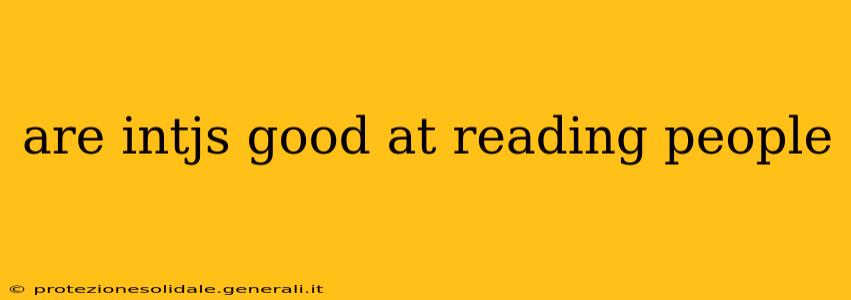Are INTJs Good at Reading People? Unpacking the Introverted, Intuitive, Thinking, Judging Personality
The question of whether INTJs are good at reading people is complex. While stereotypes often portray them as emotionally detached and incapable of understanding others' feelings, the reality is far more nuanced. INTJs possess a unique blend of cognitive functions that can lead to both exceptional insights into human behavior and occasional misunderstandings. Let's delve deeper into this fascinating personality type and explore their strengths and weaknesses in social perception.
What are the Cognitive Functions of an INTJ?
Before we address the central question, it's crucial to understand the INTJ cognitive stack:
-
Introverted Intuition (Ni): This is the dominant function. INTJs are masters of pattern recognition, strategically analyzing information and predicting future outcomes. They focus on long-term goals and often see the "big picture." This allows them to perceive underlying motivations and hidden agendas, contributing to their ability to "read" people on a strategic level.
-
Extroverted Thinking (Te): This is their auxiliary function. INTJs are highly logical and efficient, prioritizing effectiveness and objective analysis. They use Te to organize their observations, ensuring their understanding of people is structured and systematic.
-
Introverted Feeling (Fi): This is their tertiary function. While not outwardly displayed, INTJs possess a strong internal moral compass and values system. Understanding this internal framework helps explain their sometimes critical, but ultimately principled, approach to interacting with others.
-
Extroverted Sensing (Se): This is their inferior function. This is where INTJs can struggle. Se deals with immediate sensory details and present-moment awareness. This can lead to them occasionally missing subtle social cues or overlooking the importance of immediate sensory input in social interactions.
Are INTJs Good at Reading People Strategically?
Yes, INTJs often excel at reading people strategically. Their dominant Ni allows them to pick up on patterns in behavior, verbal cues, and even body language, piecing together a comprehensive understanding of someone's motives and intentions. They can often anticipate actions and reactions, making them effective leaders and strategists in many fields. They are adept at identifying manipulation tactics and spotting inconsistencies in someone's presentation.
Are INTJs Good at Reading People's Emotions?
This is where the complexity arises. While INTJs can intellectually understand the reasons behind someone's emotions, they may struggle to empathize on an emotional level. Their dominant thinking functions often prioritize logic and objectivity over emotional intuition. They might accurately identify that someone is upset, but struggle to understand the nuance of those feelings or offer appropriate emotional support. This doesn't mean they lack empathy entirely; rather, it's often expressed in a less conventionally emotional way, possibly through practical problem-solving or offering helpful solutions.
Do INTJs Care About Reading People?
Whether an INTJ actively tries to "read" people often depends on their goals and the context of the situation. If they perceive a need to understand someone for a specific purpose—be it professional collaboration or strategic maneuvering—they'll invest the effort. However, if they don't perceive a benefit, they might show less interest in deciphering someone's behavior. This can sometimes be misinterpreted as aloofness or disinterest, when in reality, it's simply a reflection of their pragmatic approach to social interactions.
How Can INTJs Improve Their Ability to Read People?
INTJs can enhance their social intelligence through conscious effort:
- Practicing active listening: Focusing intently on both verbal and nonverbal cues can significantly improve their ability to pick up subtle social signals.
- Developing emotional intelligence: This involves learning to identify and understand their own emotions and those of others. Resources like books and workshops can be helpful.
- Seeking feedback: Asking trusted friends or colleagues for feedback on their social interactions can offer valuable insights.
In conclusion, INTJs are not simply "good" or "bad" at reading people. Their ability to understand others is nuanced and depends on the context and their own personal level of development. While they excel at strategic understanding and identifying underlying motives, they may require conscious effort to refine their emotional intelligence and empathize more fully with others. This blend of analytical prowess and potential emotional distance makes the INTJ personality both fascinating and complex.
